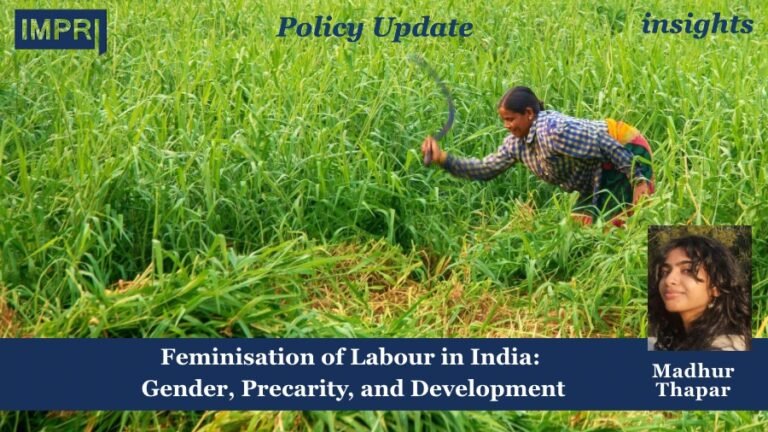Tanuj Samaddar
The issue of failed or volatile states emerging as breeding grounds of terrorism has become a focal point of international security discussions. The capacity of these organisations to exploit ungoverned spaces & use the political power vacuum and security failure to their own advantage pose an overt threat to global security and regional stability.
This argument gains further currency when considered within the African context, a continent growing more dominated by weak regimes and disintegrating systems of governance. As was India’s experience of being surrounded by states with failing democratic and security structures, so today numerous African states are surrounded by or becoming centers of structural disintegration—opening fertile ground for the spread of terrorist networks and extremist ideologies.
Especially significant in the African context is how the transnational terrorism experience has changed—both in operating structure and intellectual underpinnings. No longer confined to local insurgencies, they have adapted to using asymmetric warfare, digitally enabled radicalization networks, and institutional disintegration to expand their reach beyond borders. This is all within the broader emergence of ‘neo-terrorism’—a term used to describe the shift from regionally contained insurgencies to globally aware extremism that intersects with resource wars, migration crises, climate instability, and identity fractures.
The Crisis in Africa
The Sahel & Horn of Africa have become prominent terrorist safe spaces. State vulnerabilities are exploited by non-state actors such as Al-Shabaab, Boko Haram, and ISIS affiliates to establish de-facto governance networks. Meanwhile, Council on Foreign Relations (2022) work also underscores the geopolitics of ripple effects, including refugee crises, transnational insurgencies, and great power competition in terms of intervention strategies. The grim nature of these ungoverned regions is largely linked to the unchecked spread of illicit small srms and light weapons (SALW), drugs along with other contraband goods smuggled across the open borders.
Erosion of state institutions offers conducive grounds for terrorist groups to emerge and thrive. Scholars like Byman speak of failed states’ strategic appeal to terrorists as bases where they can undertake recruitment, training, and preparations for operations. Additionally, there has been a study conducted by Collier and Hoeffler (2004), highlighting the social and economic connotations of terrorism drawing on larger phenomena related to the onset of civil war and insurgencies.
Additionally, The activities of Al-Qaeda in the Islamic Maghreb (AQIM) in the Sahel, with other extremist groups, have taken advantage of weaknesses in these regions to conduct attacks, exercise control, and undermine state authority. Terroism finds breeding ground in spaces where violation of rights becomes commonplace. Africa’s political structure is also characterized by violations of civil and political rights, fused with violations of economic, social, and cultural rights.
- Failure of governance in collapsed states gives terrorist groups the opportunity for recruitment, operational independence, and strategic depth.
- Such enclaves provide training areas, logistical centers, and financial systems for extremist forces, extending conflict and instability cycles.
- Cross-border insurgencies driven by these havens create spillover conflicts, involving neighboring states in extended security crises.
Worst Affected Belts
This terrorism and insurgencies in the region have adversely compromised security, with a significant hike in death tolls, refugee problems, and millions of internally displaced persons (IDPs). The geographic nature of the Sahel belt, especially West Africa, lends itself to terrorism, insurgencies, and insurgency warfare. From Northeast Nigeria, the BHT (Boko Haram Terrorism) gradually spread to other areas of Nigeria and to a large part of the Lake Chad Basin (LCB).
The scourge threatens not only Nigeria’s territorial integrity: it also jeopardizes the regional stability and security of millions of people within and outside the country. the LCB region has remarkably witnessed violent conflicts, guerilla wars, warlordism, terrorism, and militias insurgency largely spawning from the Chadian civil war of the 1980s, followed by armed rebellions and factional militias in both Niger and Central African Republic that emerged to capture ungovernable spaces due to lack of political legitimacy, leadership squabbles, and political fragmentation that bedeviled states across the region. Since 2012, the BHT swiftly expanded their operational frontiers through regionalization of terrorism.
Conclusion
Enhanced international intelligence-sharing mechanisms to track terrorist movement and funding routes & use of precision-guided military operations that minimize collateral damage and civilian casualties is the need of the hour. Facilitating governance reforms, institutional development, and
socio-economic growth to avoid re-emergence of terrorist strongholds is equally important paving the pathway for the creation of stronger global legal provisions for prosecuting terrorist organizations based in ungoverned space while respecting the standards of human rights.
Research Journey
My journey as a Research Fellow at the Impact & Policy Research Institute, New Delhi has been underscored by steering discourse on sophisticated themes like transnational insurgencies, regional security systems, and foreign policy conduct and learning from some of the top minds of the country has been nothing short of enthralling. Interaction with luminarie like Ambassador Shashank and Prof. Swaran Singh among others have exposed me to a multitudinal school of diplomacy and foreign policy ; from gaining insights on public diplomacy to supply chain dynamics and the overarching geopolitical implications, my learning curve in the domain of geopolitics has witnessed an unprecedented hike.

External References
- Rotberg, Robert. (2002). Failed States in a World of Terror. Foreign Affairs. 81. 127.10.2307/20033245. Also available at : https://www.researchgate.net/publication/272544430_Failed_States_in_a_World_of_Terror
- English, R. (2016). The future study of terrorism. European Journal of InternationalSecurity, 1(2), 135–149. doi:10.1017/eis.2016.6. Also available at : https://www.cambridge.org/core/journals/european-journal-of-international-security/article/abs/fu ture-study-of-terrorism/33B6BEC758100EDBBEA5B70FD1E96F44
- Byman, D. (2005). Passive sponsors of terrorism. Brookings Institution. https://www.brookings.edu/wp-content/uploads/2016/06/05_terrorism_byman.pdf
- Collier, P., & Hoeffler, A. (2004). Greed and grievance in civil war. Oxford Economic Papers, 56(4), 563–595. https://doi.org/10.1093/oep/gpf064
- Council on Foreign Relations. (2022). Preventive priorities survey 2022. Retrieved from : https://cdn.cfr.org/sites/default/files/report_pdf/PPS2022.pdf
- Rufus, A. I. (2024). Ungoverned Spaces and the Challenges of Terrorism in Africa. Kashere Journal of Politics and International Relations, 2(2), 490-503.
- Waddington, C. (2016, January 20). The battle for the Sahel: Confronting Islamist terror groups throughout the region. In On Africa. Also available at : http://www.inonafrica.com/2016/01/20/the-battle-for-the-sahel-confronting-islamist-terror-groups-throughout-the-region
About the contributor: Tanuj Samaddar is a fellow at DFPGYF Diplomacy, Foreign Policy & Geopolitics Youth Fellow at IMPRI and is a student at Kirori Mal College.
Disclaimer: All views expressed in the article belong solely to the author and not necessarily to the organisation.
Read more at IMPRI:
Spoilers and Showdowns: What Sudan’s War Teaches Us About Modern Civil Conflicts
Acknowledgment: This article was posted by Bhaktiba Jadeja, visiting researcher and assistant editor at IMPRI.



